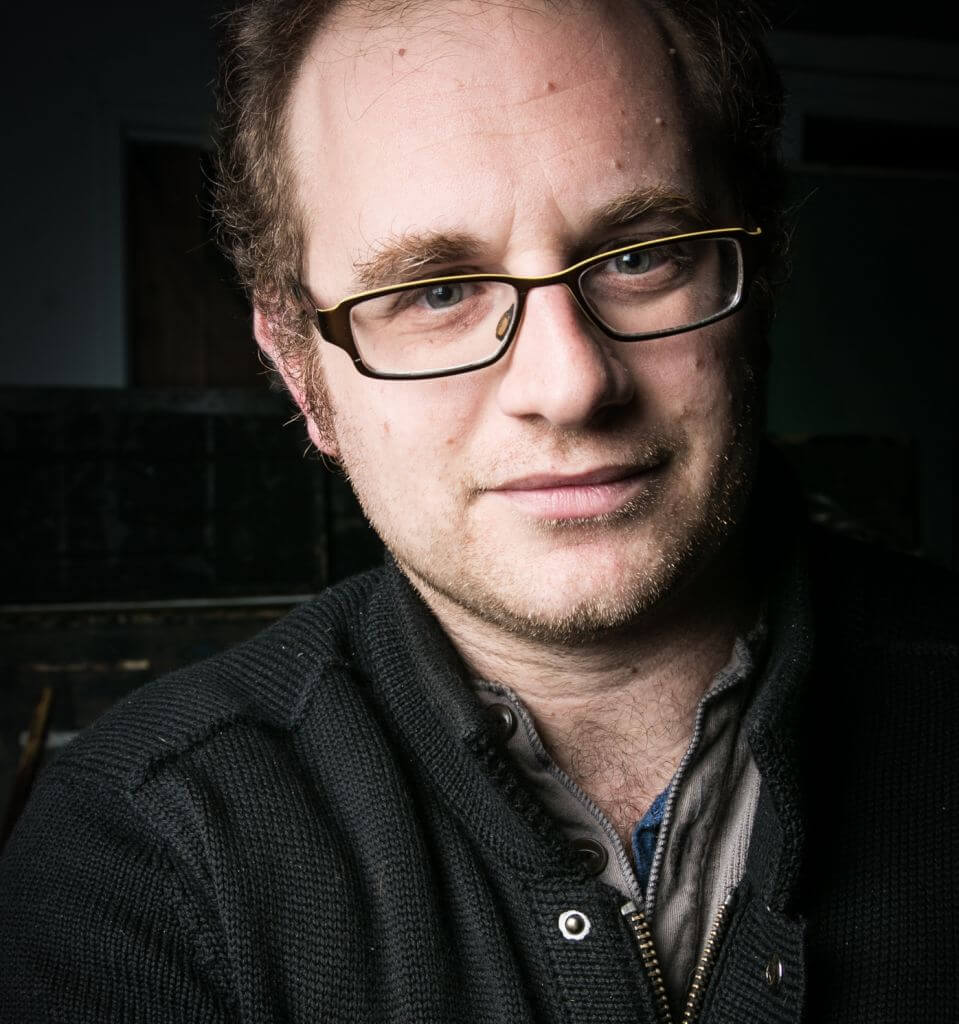Glickman Award Winner Finds Humor and Depth in Discord
by Edward Guthmann
In his scathingly funny Eureka Day, Oakland playwright Jonathan Spector satirized the anti-vaxxing debate—and set his comedy in a fictitious Berkeley private school where the platitudes of political correctness frequently intercept any semblance of reasonable discourse.
“Jonathan Spector’s play is so crisply defined that you might have to periodically remind yourself that you haven’t already met these characters in real life,” wrote San Francisco Chronicle critic Lily Janiak when the play opened in April 2018 at the Aurora Theatre in Berkeley.

Eureka Day is the winner of the 2019 Will Glickman Award, given annually to the best new play to premiere in the Bay Area. The award, administered since 2004 by Theatre Bay Area, is shared by Spector and Aurora Theatre and was presented April 1 at the Theatre Bay Area Annual Conference at Freight & Salvage in Berkeley. Spector received a $4,000 cash prize.
“It’s a huge honor,” Spector says. “So many plays and playwrights I love have received it over the years. It’s head-spinning to be included in that group.”
Although Eureka Day deals specifically with the vaxxing debate—one side’s insistence that early vaccinations cause autism, and the other side’s equally vehement repudiation—Spector sees the schism as a metaphor for a larger crisis. At its core, he says, his play is about the escalating hostility of America’s culture wars and our inability to listen to those with whom we disagree.
“I began writing in the lead-up to the [2016] election,” Spector says, “and the backdrop of the election helped clarify for me the main question the play was interrogating. It’s a play in part about consensus, but is it possible to find consensus if you can’t agree on what the facts are? How can you have a functioning democracy if you don’t have some shared baseline of reality?”
Spector, 39, was speaking at his home in north Oakland, soon after returning from a two-week writing retreat at the MacDowell Colony in New Hampshire, where he received a fellowship. He shares the house with his wife, theater director/educator Molly Aaronson-Gelb, and their 3-year-old daughter, Maisie.
A native of Annandale, Virginia, Spector was educated at New College of Florida in Sarasota, and lived in New York City—where was he was a member of Soho Rep’s Writer/Director Lab, and worked as assistant director—before moving to Oakland in 2006.
Eureka Day, he says, “is specific to the Bay Area in certain ways. I can’t imagine I would have written a play set in Berkeley without having spent time here.” Also, Aaronson-Gelb is a humanities teacher at Park Day School in Oakland and prior to that taught drama at Bentley High School in Lafayette. “I definitely drew on some of her experiences,” Spector says.
Spector also researched online anti-vaxxing forums and spoke with people on both sides of the issue. “I interviewed people regardless of their position, and when you talk to a person one-on-one you have a very reasonable conversation with them. And then you go online and people would become so vicious and so crazy.”
To illustrate that in Eureka Day, Spector wrote a scene, both excruciating and hilarious, in which the school executive committee hosts a vaxxing conversation on the school’s Facebook page. On stage, those comments were projected simultaneously with the main characters’ dialogue: gradually, emotions come to a boil and comments turn ugly and accusatory (“Just keep your poison off my kids,” and “We’re all threatened by your anti-science death cult”).
“I felt like it would not be fully representing the way people engage with this idea if that element wasn’t part of [the play],” Spector says. “But it didn’t feel right to have any of my characters stoop to that level of insanity. So that’s when I started playing around with the idea of this online forum.”

A new production of Eureka Day will open August 22 at the Spreckels Performing Arts Center in Rohnert Park, and another on Dec. 4 at the Mosaic Theater Company in Washington, D.C. Although the piece is rooted in Berkeley and the rhetoric of Bay Area political correctness, Spector thinks “some of the conversations they’re having could exist anywhere, certainly any big coastal city.”
Tom Ross, the Aurora Theatre artistic director who commissioned Eureka Day, says he’s been a fan of Spector’s work for several years. “Jonathan has the most incredible ear for how people actually speak, as well as how they use words to camouflage their real feelings and motivations. He also has a huge heart and it shows in the way he treats all of his characters so compassionately.”
“Jonathan’s dialogue is very specific,” says David Sinaiko, an actor who appeared in two earlier Spector plays, In From the Cold and Good, Better, Best, Bested. “His dialogue has a conversational rhythm and flow, while always staying tied to a character’s subconscious needs.”
Lisa Anne Porter, one of the original Eureka Day cast members, says Spector“writes people who speak as they are thinking, which is exciting and fresh. He has watched and listened to the people and the world around him with empathy, intelligence and humor, and writes about complicated things that are happening now with complexity and depth.”
In addition to writing plays, Spector runs Just Theater, a small theatre company he co-founded with his wife Molly. “We usually produce one or two plays a year – if not world premieres then certainly regional premieres. It’s been less active since we had a child. We’re producing a play this summer, Cry It Out by Molly Smith Metzler.”
Although his career is on an upswing, Spector says he still needs to supplement his income with side gigs. “I do some teaching. I do some bookkeeping, which I’m trying to wind down. Making a living as a playwright is something few people manage to do.”
Things could change, Spector says: “These days we’re sort of in this strange moment because there’s a lot of playwrights making money from TV because there’s a lot of TV work. Which is something I’m just beginning to pursue.” He has an agent, and is developing an idea with some producers connected to a TV studio.
Asked why he became a playwright, Spector says he doesn’t know. But he’s clear on why he enjoys it: “It’s an opportunity to think in a deep way about things that you don’t know or that aren’t clear to you. And also because I just love the strangeness and intricacy of human speech and human interaction. It’s fun to get to play with that.”
Edward Guthmann is a Bay Area journalist and former staff writer/film critic at the San Francisco Chronicle. His memoir Wild Seed was published in 2017. See www.EdwardGuthmann.com.
